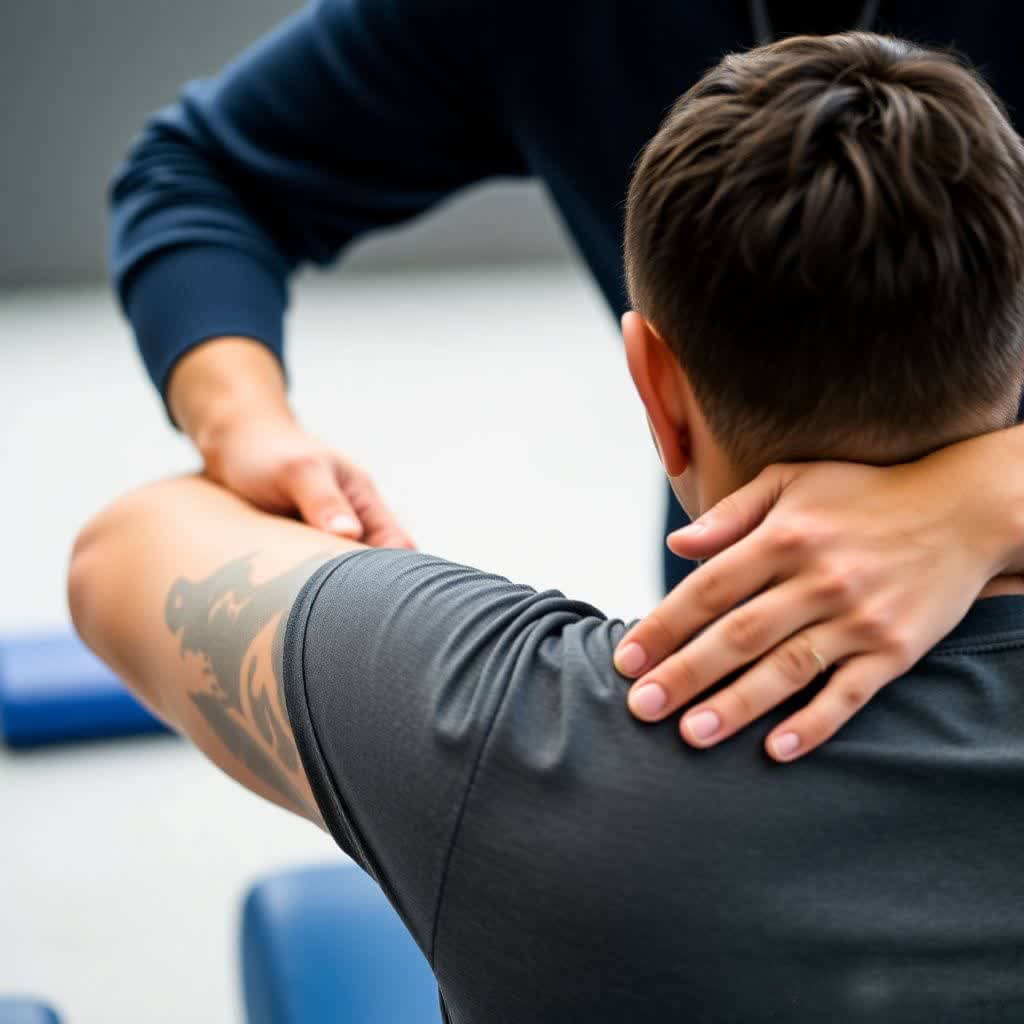Shoulder treatments require careful consideration since shoulders are a highly mobile joint susceptible to wear and tear. The freedom of movement of the shoulder joint places significant importance on the muscles supporting the joint being well balanced. When the stabilizing muscles, also known as the rotator cuff muscles, are out of balance, the result is undue strain on some of the tendons. This is known as rotator cuff tendinopathy. The most involved muscle in rotator tendinopathy is the supraspinatus. The supraspinatus is often involved for two reasons. The first is that the tendon passes through a tunnel at the top of the shoulder that can lead to increased irritation and inflammation of the tendon. The second, is that the tunnel can become even more irritating when the scapula is protracted (as often occurs with poor posture or slouching). Clinically, we call this Shoulder Impingement Syndrome.
While physical therapy is essential for correcting the muscular imbalances and poor posture that led to shoulder impingement, it is often not enough to correct the damage that the tendon has already undertaken. Classically, steroid injections have been used to mask the symptoms of this condition. Thankfully, the research on regenerative therapies continues to uncover the power of prolotherapy using PRP.
Shoulder treatment results
One recent double-blind randomized controlled trial that was authored in conjunction with the Department of Orthopaedics at Cleveland Clinic, compared PRP and Steroid injections for the treatment of this condition. The study included 50 patients and found that even after a single injection, PRP had a stronger effect on improving pain and overall functionality at 12 months post-injection (1). Further, the failure rate for improving symptoms with PRP was only 12% while the rate of failure for the steroid injection was an astounding 30% (1). Clearly, PRP is revealing itself to be a far superior treatment for the long-term treatment of many orthopedic conditions including Shoulder Impingement Syndrome.
Dr. Kristian Flores, MD, ND, began his medical journey as a Naturopathic Doctor. He then earned his Medical Degree, completing an Internal Medicine internship as well as a residency in Physical Medicine and Rehabilitation (also known as Physiatry). As a Board-Certified Physiatrist, Dr. Flores specializes in the prevention, diagnosis, and rehabilitation of people disabled by disease, disorder, or injury. He works extensively with patients suffering from acute and chronic pain conditions such as spine pain and sports injuries. His practice also includes helping patients with disabling conditions such as brain injury, long-covid, and hypermobility disorders.
Reference
Luciano Andrés Rossi, Rodrigo Brandariz, Tomás Gorodischer, Pablo Camino, Nicolás Piuzzi, Ignacio Tanoira, Maximiliano Ranalletta, Subacromial injection of platelet-rich plasma provides greater improvement in pain and functional outcomes compared to corticosteroids at 1-year follow-up: a double-blinded randomized controlled trial. Journal of Shoulder and Elbow Surgery, Volume 33, Issue 12, 2024, Pages 2563-2571.



